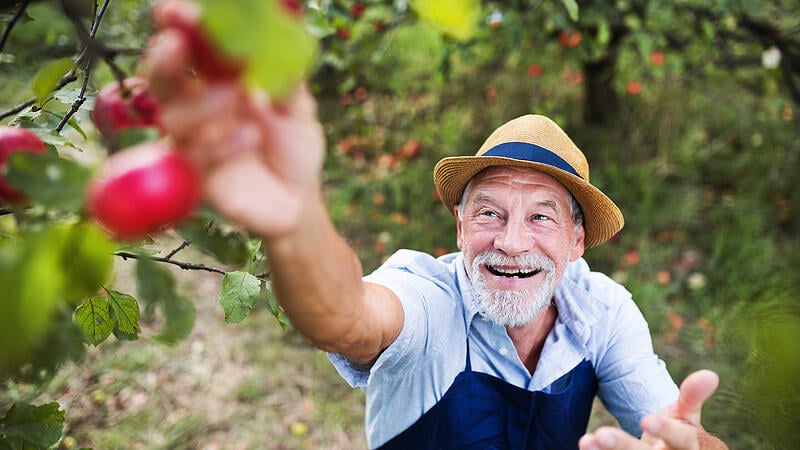While the winter was dry and mild, this spring was wet and relatively cool. The late frost caused major problems again, and fungal diseases and pests are also causing problems for hobby gardeners this year. These are the biggest concerns – and the measures that should be taken now:
- Snails: The invasion is imminent or already imminent, as the wet weather is causing populations to explode. In the long term, it helps to create oases for beneficial insects: leaves lying around for ground beetles, piles of wood for hedgehogs and slow worms. In the short term, organic slug pellets are the drug of choice. For several years there has been grain that is more resistant to rain, which is bright blue and can be dosed much less (Neudorff-Ferramol compact, Compo Bio-Schneckenkorn or Solabiol slug grain). Pay attention to a high iron-III-phosphate content! My tip: sprinkle on the compost heap and also apply in the vegetable garden and selectively in flower beds and flower meadows. It is very productive, five grams per square meter are enough.
- fungal diseases: The first brown leaves on fruit trees are already there. As temperatures rise, powdery mildew will soon reappear. Diseased parts of plants may no longer become healthy, but with horsetail preparations, the new raw material lecithin and sodium hydrogen carbonate (baking powder) combined with microorganisms (“plants”), further spread can be contained quickly and effectively. Cut back diseased parts that have completely died off due to peak drought, i.e. the Monilia disease, down to the healthy wood.
- weed growth: Even if it was relatively cool, the growth this year is enormous – including that of weeds. Therefore, clean the beds as quickly as possible so that vegetables or ornamental plants are not suppressed by goutweed and co. As long as the soil is still moist, the weeds can be removed easily.
- No fruits – no flowers: The late frosts have really hit the fruit trees. There are huge losses for apricots and cherries. But currants and gooseberries are also affected and there are major setbacks in ornamental gardens. Many hydrangeas remain without flowers again this year and some “hardy” plants have been hit by the past frosts. Oleanders or palm trees that have wintered outdoors have now dried up. Here we have to wait and see where they sprout.
- Vegetables not growing: After the garden year got off to an extremely brisk start in March, the vegetable garden slammed on the brakes. Whether peas, beans, cucumbers or tomatoes – they often didn’t grow at all or stunted. Don’t worry: even those who only plant at the end of June will catch up faster than they think. Here, too, support stunted plants with nettle extract and microorganisms (“roots”) – or plant them again. The new seed usually grows much more vigorously.
Source: Nachrichten




